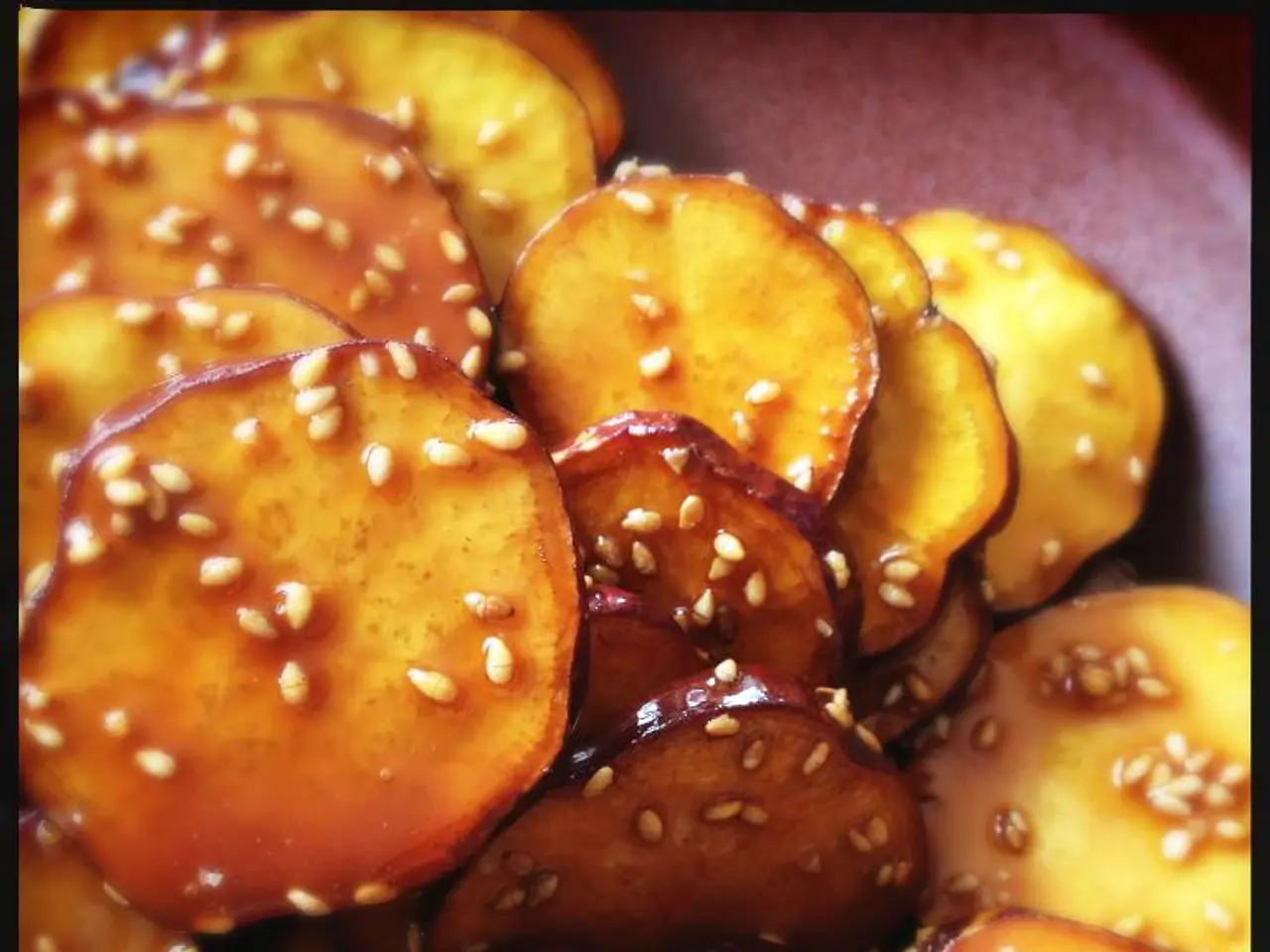Diet for Gastric Sleeve Surgery: Foods to Consume and Those to Avoid
In the aftermath of a gastric sleeve surgery, a carefully planned diet plays a pivotal role in promoting healing, preventing complications, and supporting long-term weight loss. The post-gastric sleeve diet is designed around high-protein, nutrient-dense foods to aid recovery, maintain muscle mass, and facilitate sustainable weight loss.
The diet progresses through four distinct phases, each with its own set of allowed foods, portion sizes, and foods to avoid.
1. Clear Liquid Diet (Days 1-3): During this initial phase, patients are advised to consume only clear liquids such as water, broth, sugar-free gelatin, decaffeinated tea, and clear protein drinks. This phase allows the stomach to heal and prevents dehydration.
2. Full Liquid to Soft Foods (Days 4-14): In this phase, patients gradually introduce protein shakes, strained soups, and other easily digestible liquids. Portion sizes start small (1-2 ounces every 15 minutes initially, increasing to 2-4 ounces per meal) to accommodate the new, smaller stomach.
3. Pureed/Soft Foods (Weeks 3-4): This stage introduces smooth, blended foods like mashed potatoes, yogurt, pureed lean meats, scrambled eggs, soft cooked vegetables, and soft fruits. By the end of this stage, the portion size typically reaches around 1/4 to 1/2 cup per meal.
4. Regular Diet (Week 4 and beyond): In the final phase, patients introduce a broader variety of foods but continue eating small portions (½ to ¾ cup per meal). The focus remains on high-protein foods such as lean meat, dairy, beans, and soft cooked vegetables while avoiding problematic items.
Long-term eating habits also play a significant role in the success of gastric sleeve surgery. Patients are advised to eat slowly, chew food thoroughly, avoid drinking fluids 30 minutes before and after meals, eat 3-6 small meals per day to meet nutritional needs, and aim for about 60–90 grams of protein daily.
Certain foods should be avoided after gastric sleeve surgery, including raw vegetables and fibrous/gassy vegetables, tough meats, nuts and seeds, starchy foods, popcorn, sugary foods and beverages, and foods that contribute to flatulence.
Following this structured approach helps ensure proper healing, prevents complications, and supports long-term weight loss success after gastric sleeve surgery. Doctors often recommend a weight management program before gastric sleeve surgery, and a dietitian will create a personalized list of foods to suit the individual's needs and taste.
It's essential to note that gastric sleeve surgery is irreversible, and patients should focus on consuming foods with a lot of fiber after about 1 month post-surgery to support weight loss. Additionally, due to reduced nutrient absorption following the surgery, patients should consume enough protein or take supplements. Recommended adjustments include consuming between four and six smaller meals every day, chewing thoroughly and slowly, and avoiding eating due to stress or boredom.
The table provided demonstrates the ideal foods and timeframes for each diet phase after gastric sleeve surgery, offering a clear guide for patients navigating this important aspect of their recovery.
- The bipolar disease, marked by extreme mood swings, is a mental health condition that requires careful management.
- In some cases, diabetes may lead to macular degeneration, a condition causing vision loss in older adults.
- Psoriasis is a chronic skin condition that can benefit from a gluten-free (GF) diet, such as reducing the intake of foods like wheat and barley.
- Crohn's disease, a chronic inflammatory bowel disease, may necessitate food and food benefits assistance due to the limited diet required for managing symptoms.
- HIV-positive individuals might face difficulties with chronic kidney disease and type-2 diabetes as complications.
- As the degeneration process in glaucoma progresses, certain medications along with a healthy diet and exercise are used for treatment.
- People with type 1 diabetes need to closely monitor their blood glucose levels and manage their diet accordingly, especially when it comes to carbohydrate intake.
- Migraine sufferers may benefit from specific diet and lifestyle changes to help manage their symptoms, such as decreasing caffeine and alcohol intake.
- Depression often occurs as a comorbidity with other mental health disorders or chronic diseases, including diabetes, chronic kidney disease, and obesity.
- Preparation (prep) is crucial when following the right diet for weight management, especially after bariatric surgery like gastric sleeve.
- Eczema patients may experience dry skin, which can cause discomfort, but following a balanced skincare and dietary regimen can help manage its symptoms.
- A predictive analysis of nutritional quality (AQ) score can help understand the overall value of a particular food for health and fitness.
- Obesity, a chronic disease, can lead to numerous complications, including type-2 diabetes, hypertension, and even asthma.
- Bariatric surgery, like gastric sleeve, is a medical-condition treatment that requires careful monitoring, exercise, and stress management to promote healing and weight loss.
- Science has proven that a healthy diet, coupled with regular exercise and sports like football, plays a vital role in maintaining a balanced weight and overall well-being.
- In American football, players have to pay special attention to their nutrition, focusing on high protein and low-fat diets for muscle development and energy management.
- In the NCAA (National Collegiate Athletic Association) football, proper nutrition, weight management, and fitness and exercise regimens are essential for maintaining peak performance.
- To avoid potential complications, patients undergoing gastric sleeve surgery should also address chronic kidney disease, chronic diseases, chronic-kidney-disease, and other health-related issues with medical professionals, ensuring that their overall treatment plan is holistic and optimized for success.




